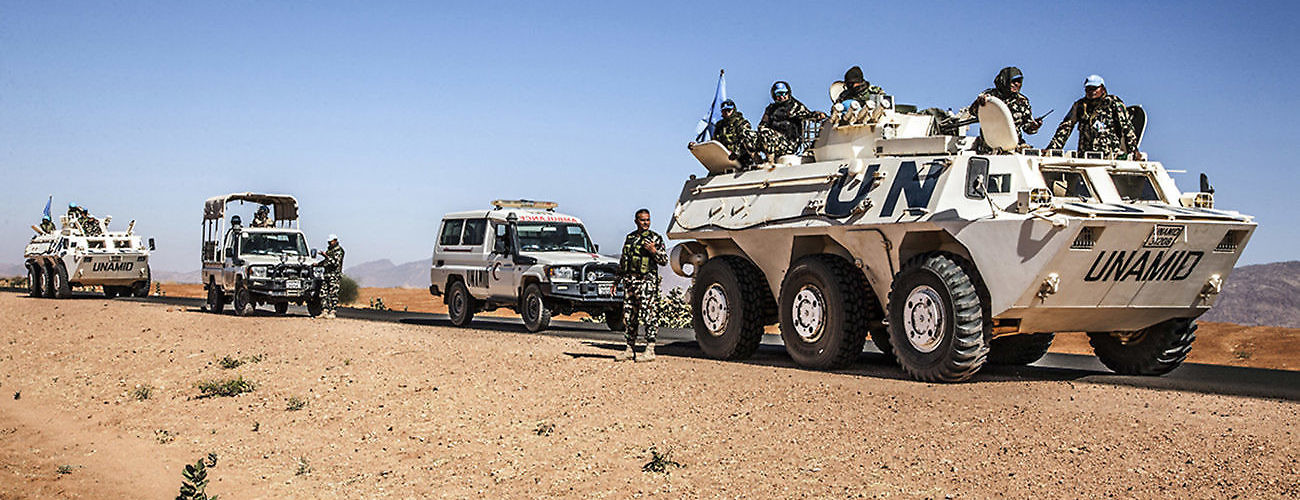A team from UNAMID’s governance and community stabilization section is escorted to the Birka area of North Darfur for a peace conference, February 1, 2018. Mohamad Almahady/UNAMID.
The UN’s transition in Sudan started out in 2014 as a process to close the African Union–United Nations Hybrid Operation in Darfur (UNAMID) in the face of waning international support and overwhelming pressure from an autocratic regime. But in 2019, Sudan’s revolution and ongoing political transition radically transformed how the UN engages with Sudan. UNAMID’s closure in December 2020 and the start-up of a new special political mission, the UN Integrated Transition Assistance Mission in Sudan (UNITAMS), now constitute one of the most complex reconfigurations the organization has ever attempted.
This paper examines the ongoing UN transition in Sudan, focusing on the establishment of UNITAMS and UNAMID’s exit from Darfur.The paper evaluates the transition across four themes pertinent to the transition of UN peace operations: the creation of a shared political vision for the transition, national engagement in the process, efforts to comprehensively plan the transition, and the dynamics of international financial support and partnerships.
In order to sustain the UN’s reconfiguration in Sudan while supporting Sudan’s own political transition, the UN should consider the following:
- Articulating a forward-looking political compact with Sudan to guide UN support to the political transition;
- Rapidly expanding support for urgent peacebuilding and protection priorities in Darfur;
- Continuously evaluating the UN’s operational presence and substantive impact outside of Khartoum;
- Encouraging the Sudanese government to provide regular updates on the implementation of the Juba Peace Agreement and its national protection of civilians plan;
- Providing frequent, detailed assessments of UNAMID’s drawdown and liquidation;
- Undertaking a nationwide campaign to raise awareness of UNITAMS; and
- Considering additional reforms to the UN’s peace and security pillar on mission planning processes.
In addition, to support the efforts of the UN and the Sudanese transitional government, UN member states could consider the following:
- Increasing financial support to coherently address Sudan’s peacebuilding and development needs;
- Maintaining a close relationship between the UN Security Council and the AU Peace and Security Council on Sudan; and
- Sustaining international attention on Sudan’s transition and maintaining UN support.








